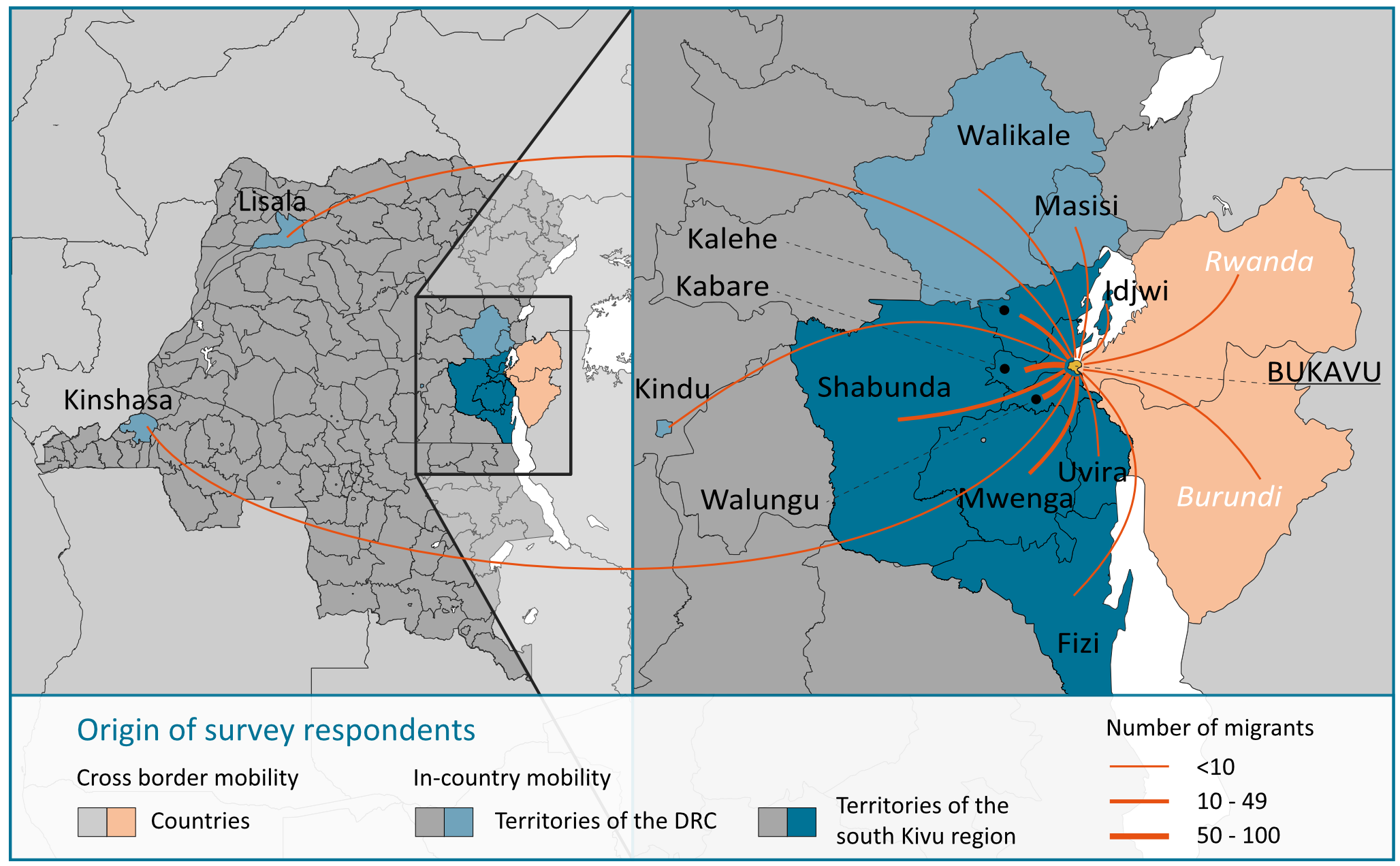TRAFIG practice note no. 4
Bolstering resilient connections in the Democratic Republic of the Congo
Available in English and French
Due to prolonged conflict, millions of people in the Democratic Republic of the Congo (DRC) have fled their homes to seek refuge elsewhere, especially in the east of the country. The majority of these Internally Displaced Persons (IDPs) flee to cities and other local communities rather than to displacement camps. Bukavu, the capital of the South-Kivu province, is a case in point. In recent years, Bukavu grew rapidly due to the influx of IDPs and other migrants – mostly from the nearby districts. Yet, in the city, IDPs largely fend for themselves, and many experience socio-economic precarity.

Connectivity is one of the ways in which IDPs can improve their situation. The first and most important connection that IDPs mobilise upon arrival are familial ties. It is from here that they start a ‘chain of connectivity’ on the road towards local integra- tion. Our research in Bukavu shows that many people depend on others in being or becoming self-reliant: They get access to employment, housing or basic services through their networks.
Authors: Carolien Jacobs, Elvan Isikozlu
You can download TRAFIG practice note no. 4 in:
Cite as: Jacobs, C., Isikozlu, E. (2020). Bolstering resilient connections in the Democratic Republic of the Congo (TRAFIG practice note 4). Bonn: BICC. DOI: 10.5281/zenodo.5841918
Cite as: Jacobs, C., Isikozlu, E. (2020). Renforcer les connexions résilientes en République Démocratique du Congo (TRAFIG pactice note 4). Bonn: BICC. DOI: 10.5281/zenodo.5865587
This practice note is based on Jacobs, C. et al. (2020). Figurations of Displacement in the Democratic Republic of the Congo: Empirical findings and reflections on protracted displacement and translocal connections of Congolese IDPs (TRAFIG working paper 4). Bonn: BICC. DOI: 10.5281/zenodo.5841860.